It’s an old joke that people tend to buy gym memberships at the beginning of the year, and end up barely using them at all.
These times may be over, though. Chinese companies are finding innovative ways to leverage tech and keep users coming back to the gym without enforcing memberships.
Keepland: leveraging social competition
Keepland is the offline workout studio of the company Keep, the largest fitness App in China.
Keepland is actively expanding its offline presence: it opened 5 studios in Beijing between March to December 2018, and 5 more during the 3 first months of 2019, along with new locations in Shanghai.
Signup process
It won’t be a big surprise that the signup for Keepland happens through WeChat Mini-programs. Users can sign up for classes or put themselves on a waiting list if the class is full (in which case they would receive a WeChat notification).
Keepland makes sure to have fully booked classes by keeping supply lower than demand. They release the classes for the next week every Friday at 10pm. The most popular classes sell out within minutes.
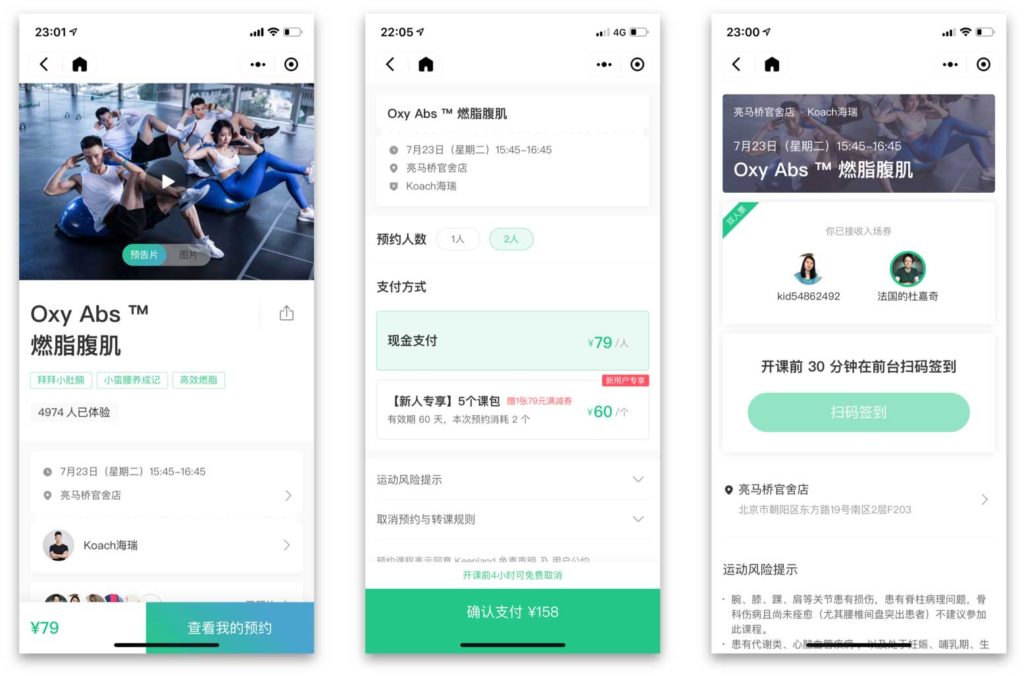
Another innovative feature of Keepland compared to other gym Apps is the ability to book classes for 2 people. Especially during a discovery class, it is likely users will go with a friend. Given the fact that Keepland classes sell out quickly, being able to book for multiple people comes handy.
A competition during every workout
The Keep workouts have one specificity: they rely on intense competitive dynamics. As you step into the gym, you’ll be handed over a bracelet aimed at monitoring your heart rate and calory consumption.
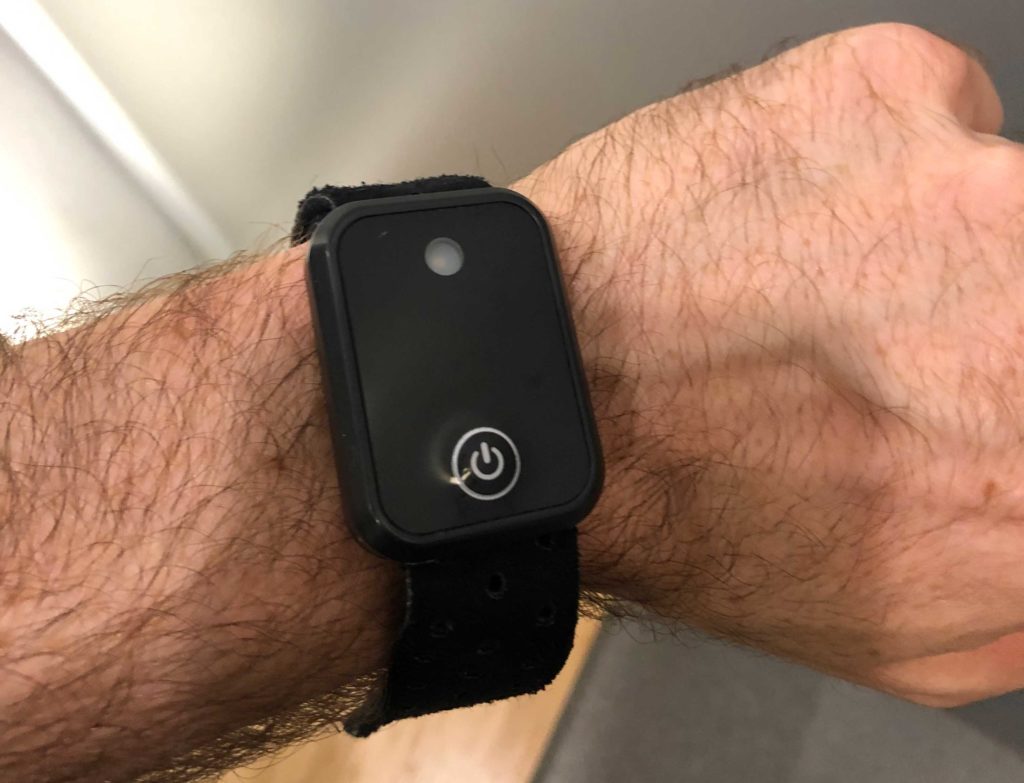
The scores (based on your calory consumption) are then displayed on a large screen in real-time, in the middle of the room, with a ranking of the top-3 participants.
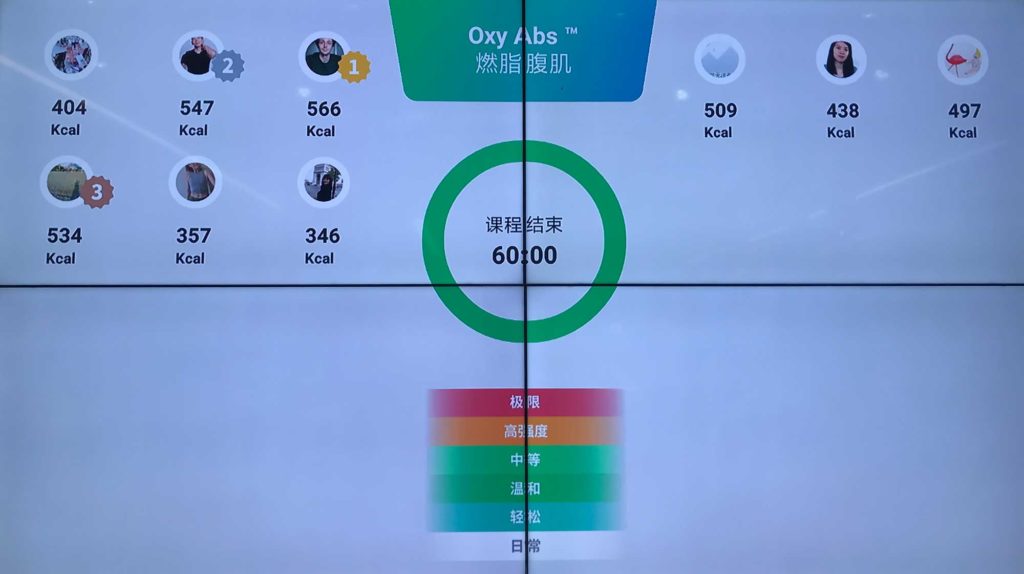
After the workout, the rankings are of course available on the WeChat Mini-program, along with a report of the activity during the class.
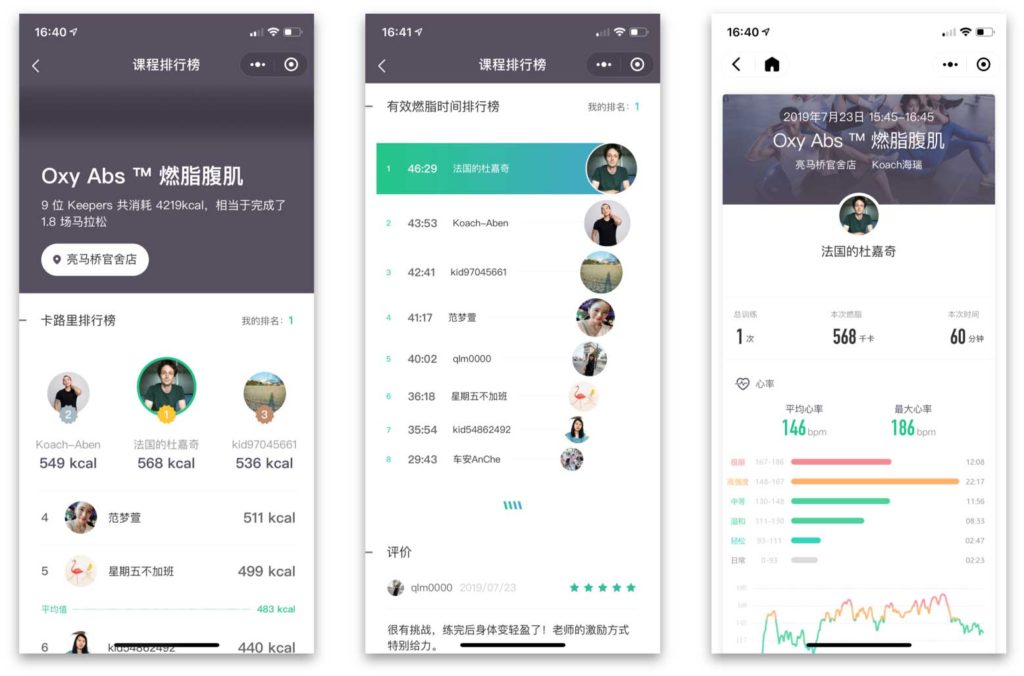
These mechanisms are incredibly efficient to drive motivation during and after the class. If the users have good rankings, they are of course very likely to share them on their WeChat groups or moments (or on their WeChat Official Account *smile*)
The heart rate monitoring bracelet also offers an innovative aspect, which helps Keep stand out in an otherwise crowded gym market.
The evaluation of performance doesn’t limit itself to students. Students are of course asked to evaluate their coach after each class.
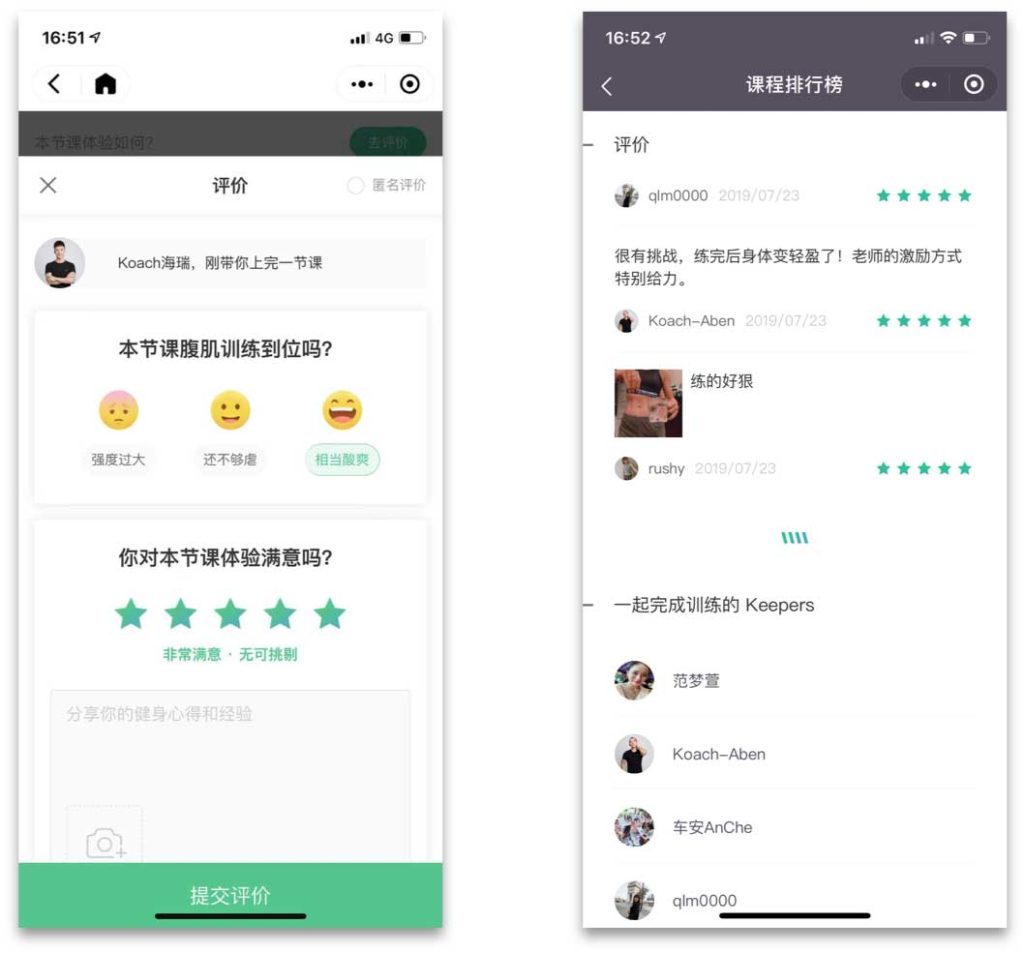
The competition continues between workouts
The competition between users doesn’t stop at the end of the workout. Each Keepland location has a leaderboard of users who attend classes the most frequently. Users who attend the most classes (up to 23 classes per month in my location) get special titles and can win prizes, such as a free membership.
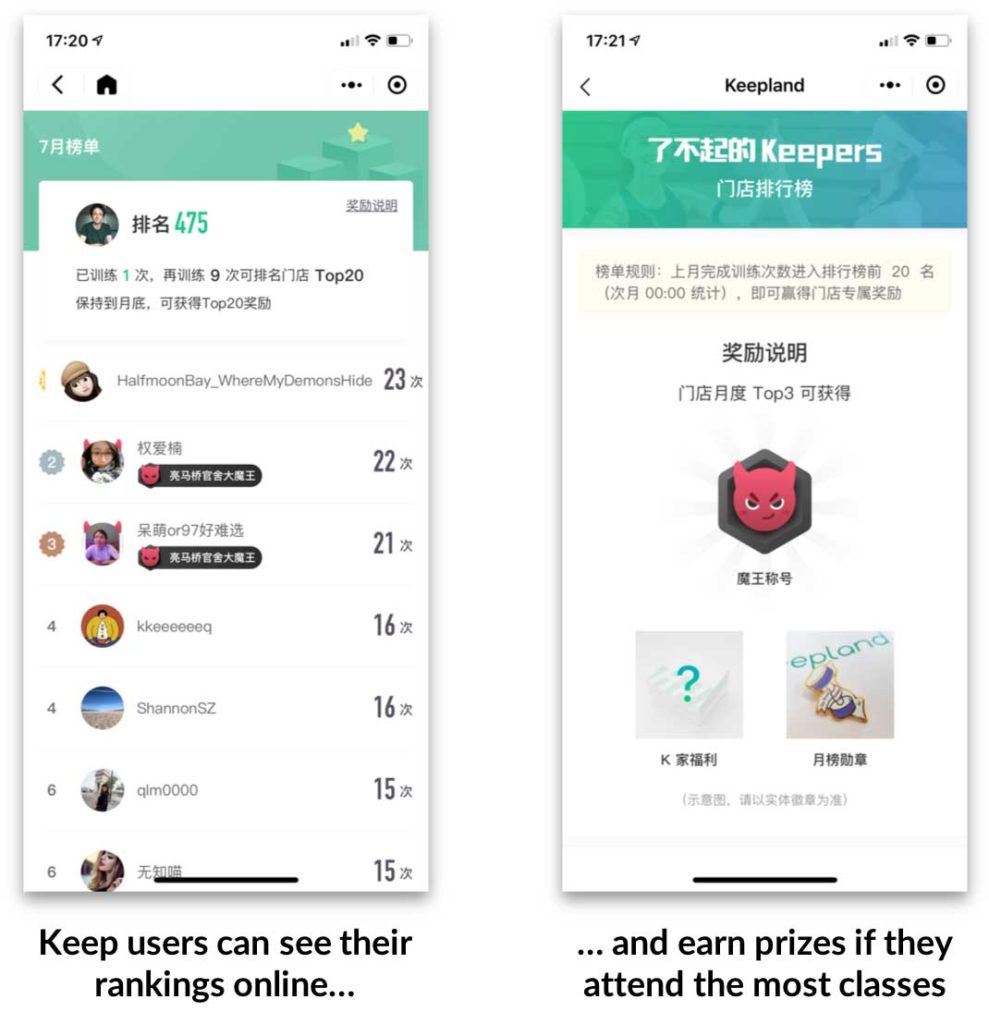
It is frequent for gyms to give prizes to their most active users. But Keepland makes it in a totally transparent way. This pushes users to attend more classes every month in order to make it to the top of the leaderboard (just as the ranking pushes them to work harder during the class).
SuperMonkey: a self-service gym with Mini Program message automation
SuperMoney is the fastest expanding self-service gym that leverages WeChat to automate all of their services. It was founded in 2014, and already raised D-round founding of RMB 360 million, valuing the company at RMB 1.66 billion.
The SuperMonkey gym is usually located within a busy shopping center, with a glass see-through wall. The class is designed like a club, modern, upbeat music and neon lights. Passerbys are often able to see the classes from outside the gym, which is one of Supermonkey’s promotional methods.

Supermonkey is also the gym with the best mobile experience.
Signup
Just like Keepland, SuperMonkey does not rely on a membership program, users can simply signup via its WeChat Mini Program. The next week’s schedule is only released on Friday night.
SuperMonkey masters the scarcity-marketing technique. It limits the most popular class (Trampoline cardio) to only 2 classes per week. It creates a lot of excitement during the class signup, and the class is usually fully booked within the first 5 minutes with over 20 members on the waitlist.
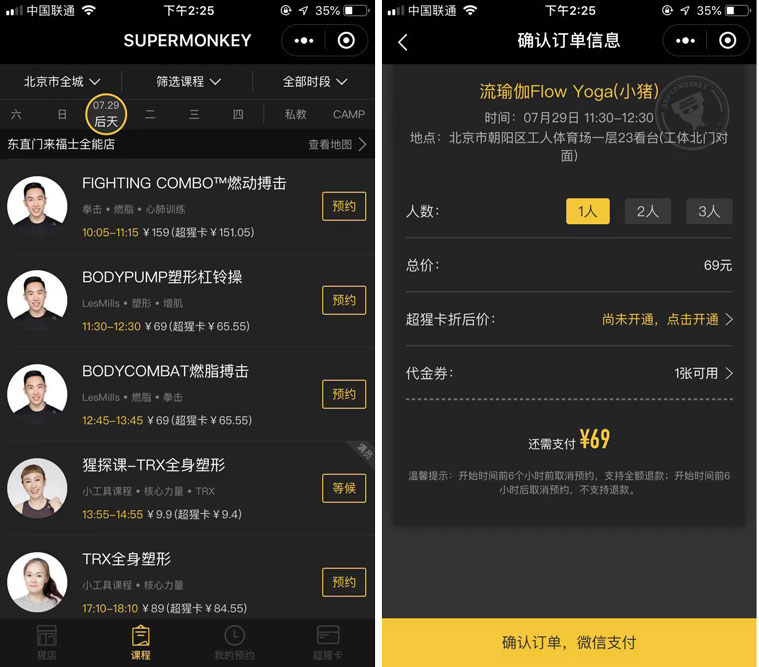
A new member can get an RMB20 discount on their first purchase
Before the class starts
Supermonkey uses the Mini Program message template to remind users that class 2 hours in advance.
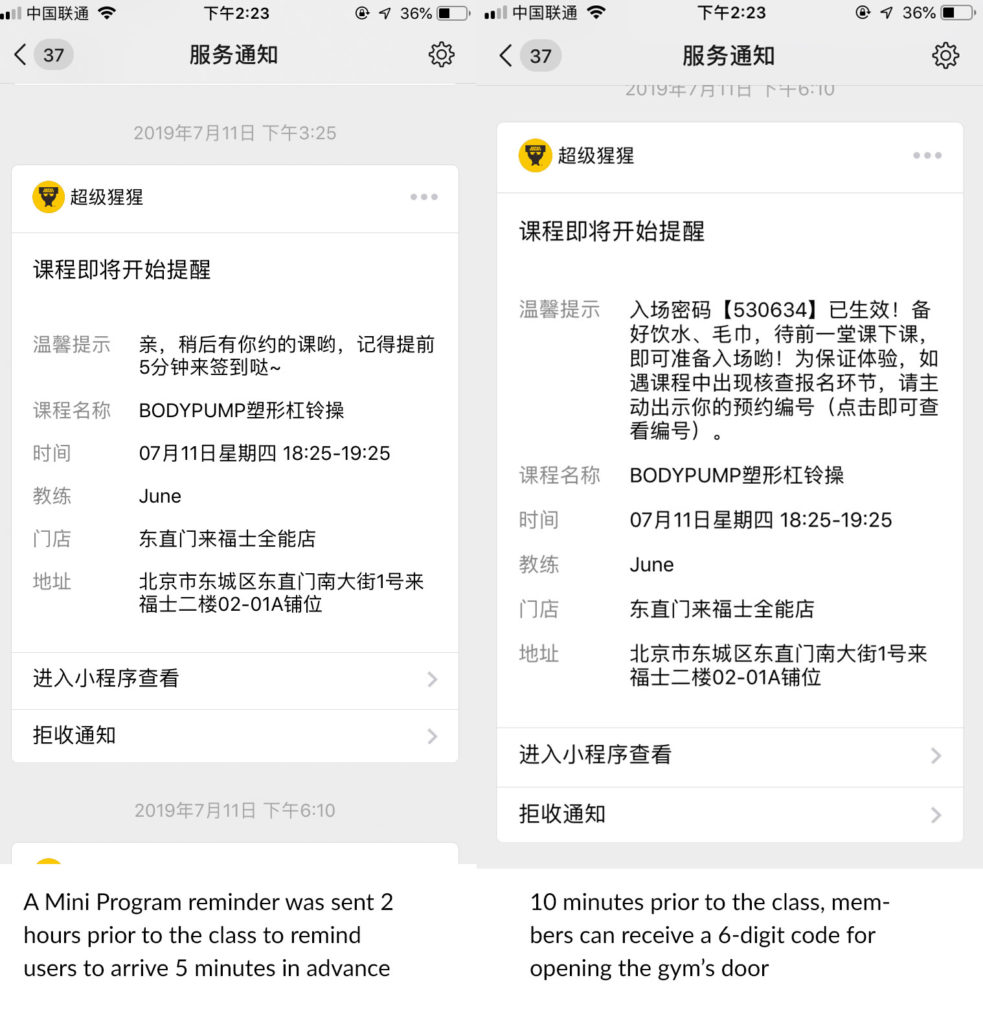
In order to automate the check-in process, SuperMonkey sends out the access password to the gym 10 minutes before the class.
The trainer will also present a QR code so that members could sign in to the class by scanning the code. After users check-in, they will also be encouraged to add the trainer as a friend on WeChat.
Follow-up after class
The marketing cycle is not over when the class is finished. SuperMonkey also uses the Mini Program notification to further engage the users:
- After the class is over, the user can get a Mini Program notification to ask them to fill out a survey to rate the class and the trainer
- Users will be able to see the ranking of their time spent exercising and compare themselves with top-ranking members
- The Mini Program also pushes a link to the class picture
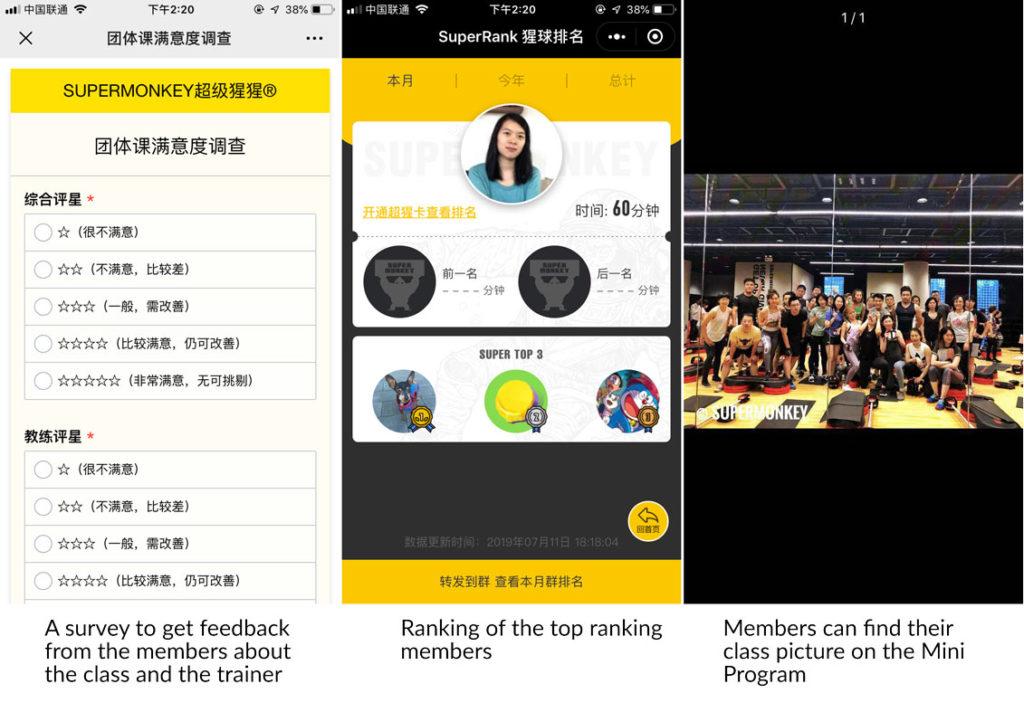
All these notification are designed to increase member’s engagement and create more incentives for booking the next class.
A solution for every gym: Qingcheng Fit
If you did not receive millions of dollars of investment to create your own fitness booking system, there is an off-the-shelf solution which might work well for you: Qingcheng Fit.
This software-as-a-service (SaaS) solution enables gyms to quickly set-up a booking deeply integrated with WeChat. When booking a class, users are invited to invite their friends to join (a perfect feature to increase engagement if some of your buddies have a membership to the same gym)
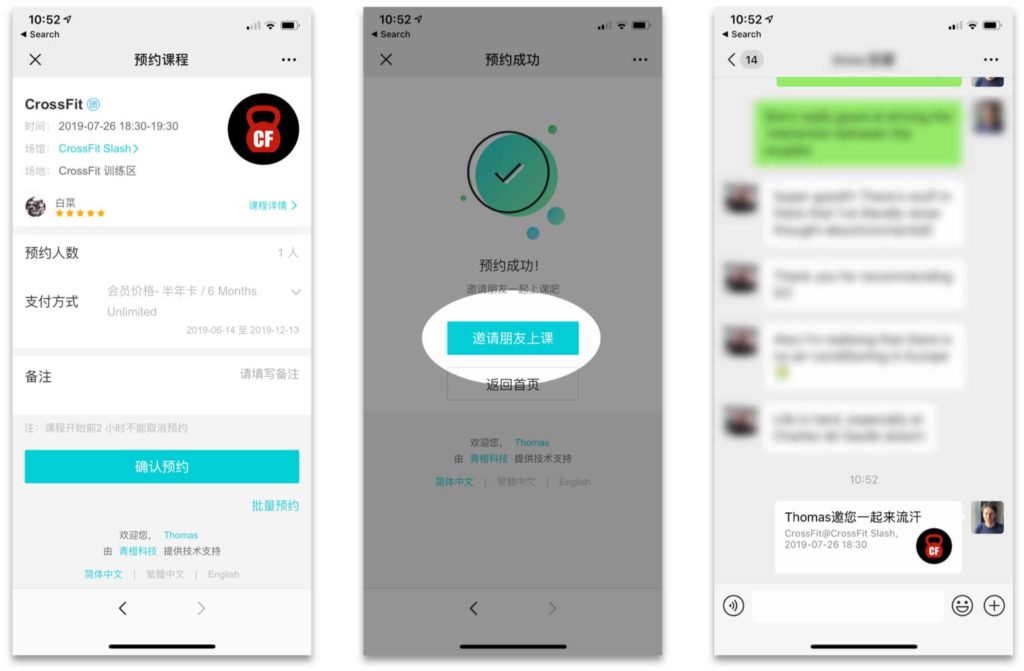
After each class, the system automatically sends a notification to the user, where they can collect photos from the class, upload their own pictures, and give feedback about the class and instructor.
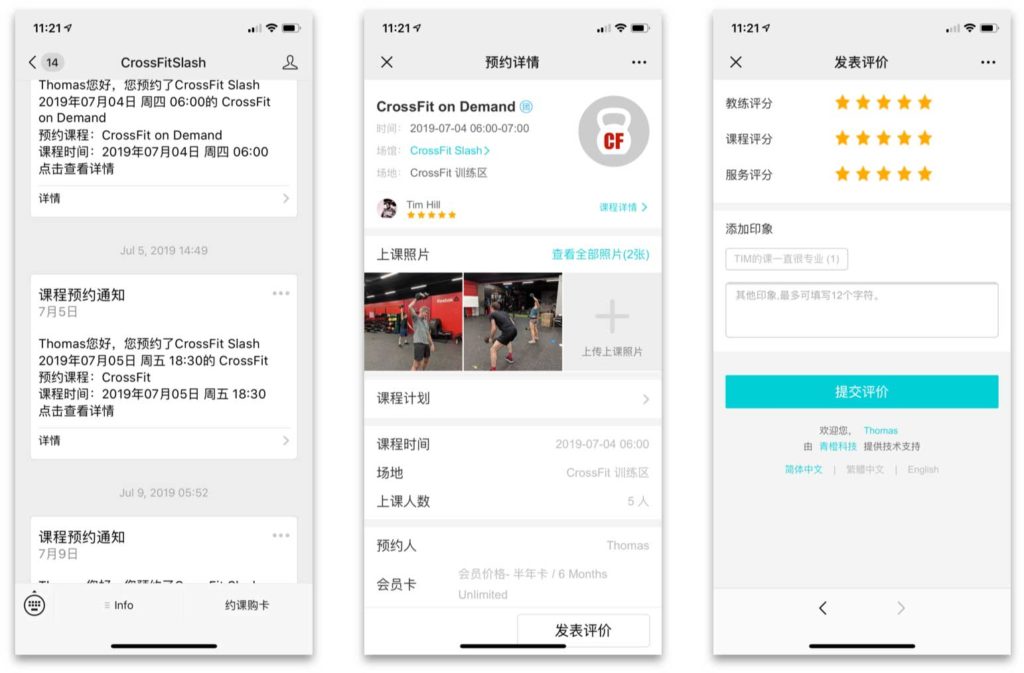
And the service seems to be in demand: Qingcheng Fit claims to support 25,000 gyms with their booking, helping them provide service to 6,450,000 end users.
The company raised 2 rounds of funding: A round in July 2015 and A+ round in January 2017. Qingcheng also managed to strike several partnerships around the topics and gym and healthcare. They managed a “Smart Gym” partnership in May 2018 to sell connected hardware, initiated a collaboration with Alibaba in September 2018, and signed an agreement on data sharing with Meituan in October 2018.
Conclusion
WeChat revolutionized communication, payments and online shopping. But it is also driving change in more traditional industries where human contact is necessary, such as offline gyms.
Gyms are a great example of an industry that embraced the use of WeChat in order to provide better service, offer a more flexible business model, and ultimately support their growth and expansion.

